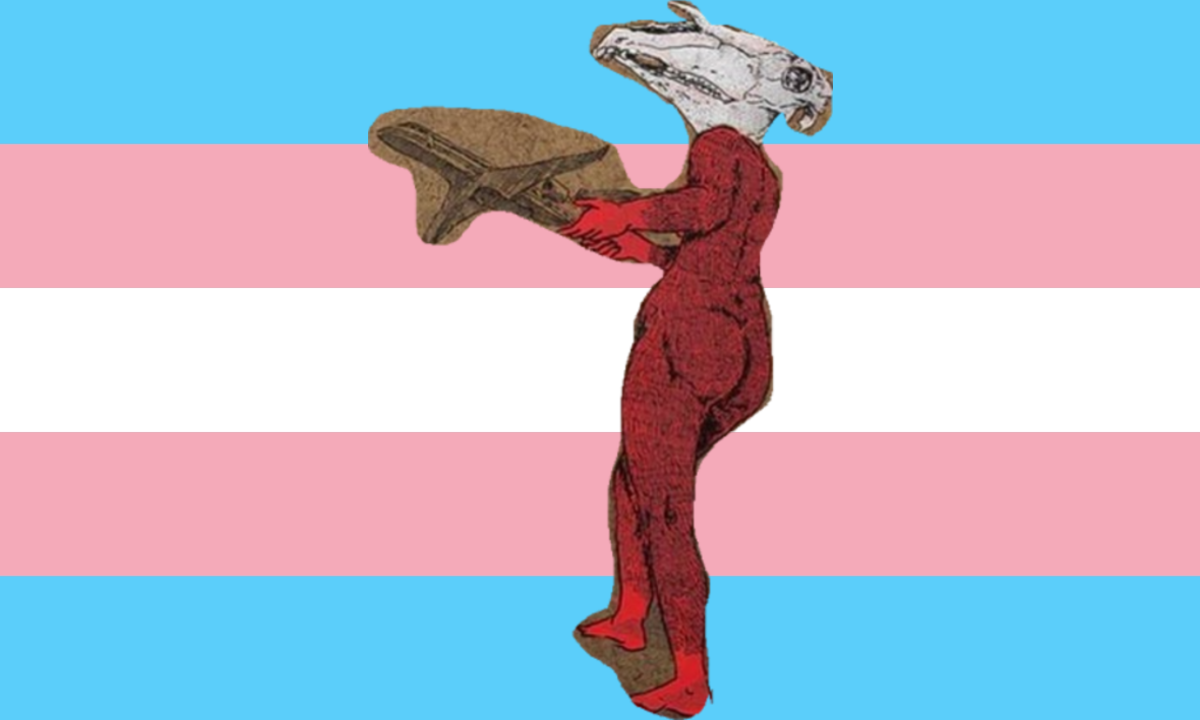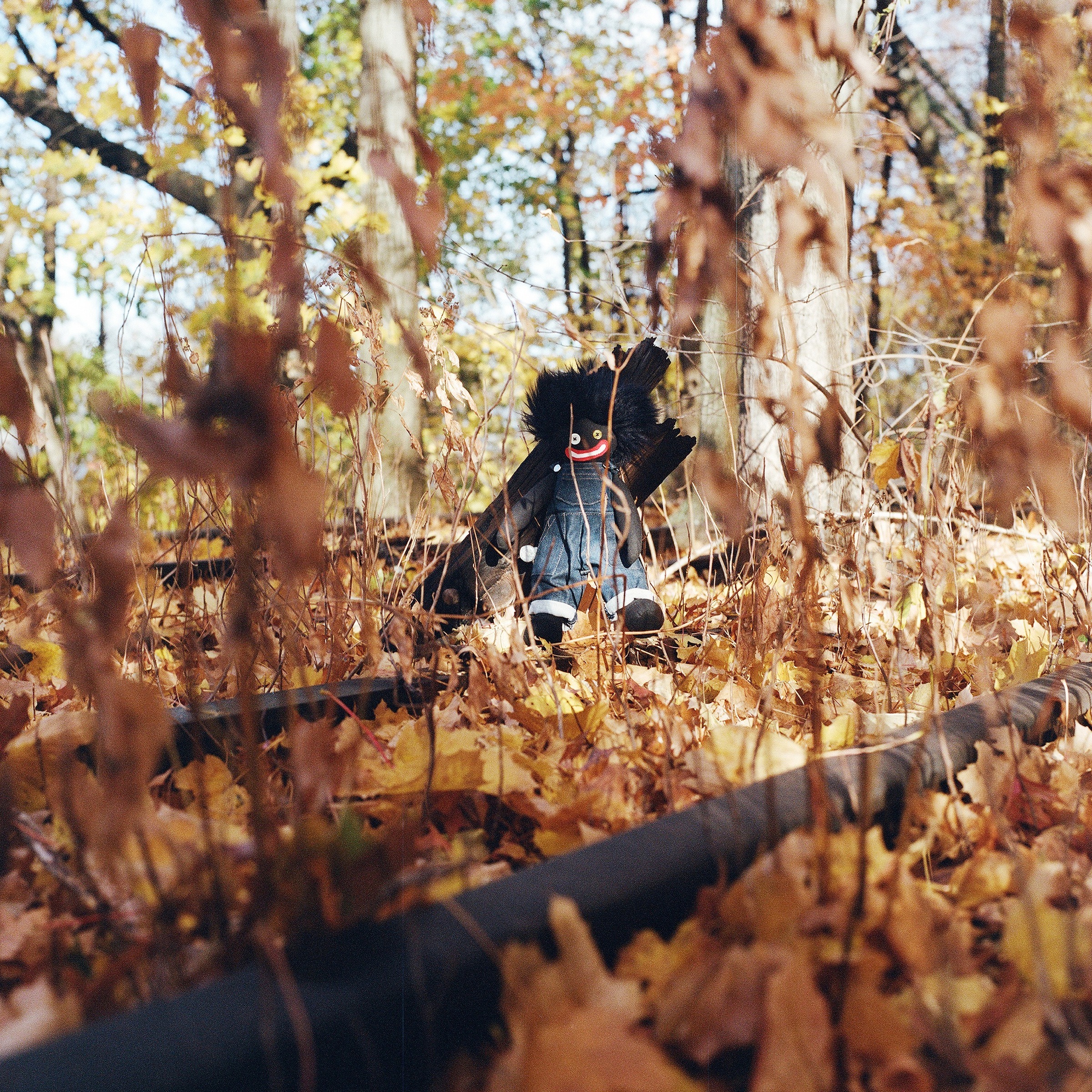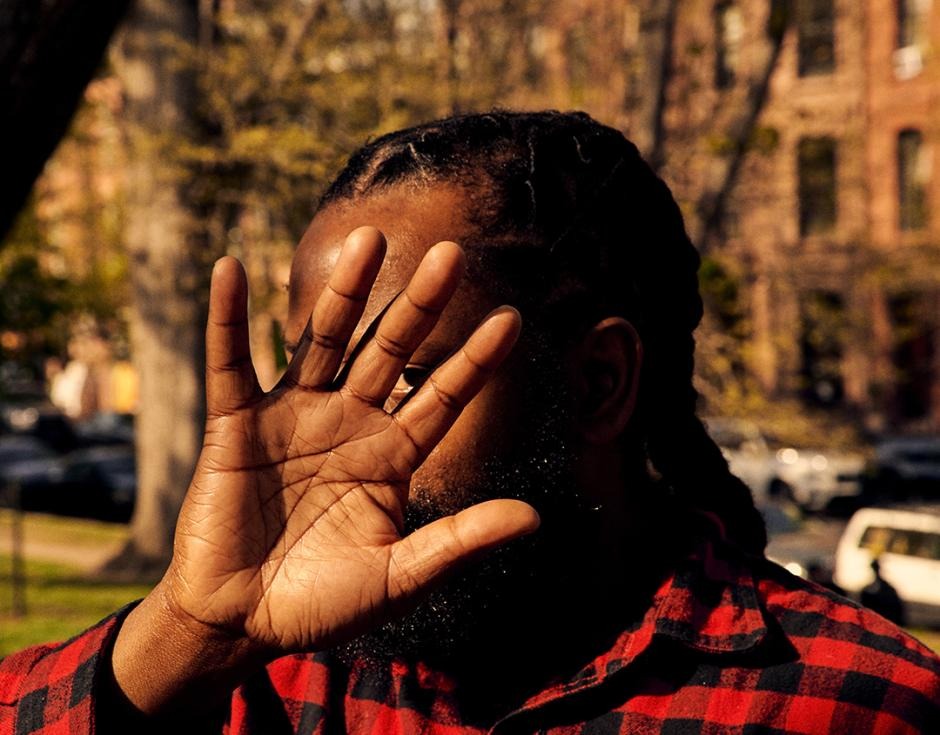
Over the years, I have developed a habit of headcanoning some of the music I listen to as 'transgender-coded.' Some of these are due to basic thematic overlap with my experiences in transition - 'Emergency Blimp' by King Krule hits like a motherfucker when you're dealing with the mires of New Zealand's HRT bureaucracy, for instance - but some of my other examples can be, admittedly, a bit more elusive. Washington rapper billy woods is not a part of the transgender community, yet I cannot think of any living writer, let alone musician, whose work is so applicable to a transgender perspective. I have openly called him my favourite living musician for a while now, and I have found a lot of comfort in his music despite his often bleak and pessimistic outlook. I find a deep relatability and honesty within his writings, particularly pertaining to my own transition and experiences with mental illness. Anecdotally, I know several other trans women who feel a similar kinship to his work -- not enough to be a widespread phenomenon, but enough to inspire my own interest in writing this analysis. I have spent a long time considering why this must be the case, as his music rarely if ever contains the traditionally 'transgender-coded' tropes of literal transformation or bodily dysphoria.
I have arrived at one possible answer, and it lies in how and why woods depicts the trauma of otherness. An attribute of woods's work that tends to go under-discussed in criticism is how he develops the thematic material found in his albums; not necessarily what he talks about, but how he talks about it. This, in combination with his honesty and empathy, leads to a depiction of trauma that is deeply applicable to the transgender experience. I hope to explore this in detail throughout this analysis, alongside provide some insight into how this affects his discography more widely.
For the record, I do not seek to draw parallels between woods's experiences as a black man and my experiences as a white trans woman — this would be a waste of time at best and an exercise in embarrassment at worse. Racism and transphobia are fundamentally different forms of oppression, both in the mechanisms used to oppress and the depths of which they are ingrained into the systems we live under. Rather, this essay is preoccupied with the ways woods talks about internal oppression, not external — although, it is worth examining the ways in which woods writes about these more universal subjects to provide context for this essay’s primary interpretation.

billy woods - 'Terror Management' (2019)
billy woods's greatest strengths as a writer lie, paradoxically, in both his focus and his ambiguity. On one hand, woods is almost always writing about something - every record of his since 2019 has examined a specific theme or idea across its tracklist, whether it be mental illness and isolation on Hiding Places; the climate crisis on Terror Management; or the African diaspora and the lingering impacts of imperialism on Aethiopes. Yet, these issues very rarely dominate the narratives on their respective records - rather, woods makes the conscious decision to let them linger in the background. Take Terror Management, which only openly spells out its thematic center of climate apocalypse in the record's bookends of 'Marlow' (opening the record with the blunt, eco protest sign-ready refrain of 'world gettin' warmer, we goin' the other way') and 'Stranger in the Village'. That isn't to say the theme is absent; rather, woods chooses to develop it through the building of motifs, evocative imagery, and dense allegory. Several songs make mention of dead birds festering on the ground; 'Dog Days' references a growing tent city outside of a metropolis; 'Shepard's Tone' closes with the bone-chilling couplet of 'rot where you fall like sick cattle / the ground grab you'. This layered approach paints a far more realistic picture of the ongoing crisis: a slow degradation and rotting of the foundations, both societal and natural; what was once unimaginable becoming routine. That was then, this is now.
Also key to the effectiveness of his writing is woods's ability to weave several other themes into the fabric of his work, while still maintaining a clear thematic centre. Despite the prevalence of climate crisis imagery present in Terror Management, for instance, it would be reductive to call it just an album about climate change -- to do so would ignore the constant references to romance, poverty, European politics, James Baldwin. It's how Aethiopes can depict childhood memories of an African dictator, hotboxing a shitty motel room post-ghosting, and woods having his car repossessed while always staying on theme. woods understands that issues of this magnitude rarely, if ever, exist in isolation; everything feeds into everything else. Life is a tangled knot, and woods's greatness lies in his ability to portray those complexities in the dense collages of narratives found in his work. Deeply personal experiences woven into political commentary woven into satire woven into exceptionally intricate shittalking, with woods's chosen theme(s) acting as a through-line.

billy woods - 'GOLLIWOG' (2025)
The word most descriptive of woods's post-2019 output, then, is haunted. He lets his subjects linger in the background, always present yet invisible, a pervasive uneasiness that never fully lets up. This is what makes his most recent record so resonant within the context of his discography: the central premise of using horror tropes and themes to portray the evils of the real world is analogous to his manner of storytelling. This is especially true given the dualistic nature of the album's structure, allowing woods to look both outward and inward. The first half is largely (but not exclusively) commentary on the external world, with most songs falling into a steady formula -- take a trope and flip it to portray the real horror that informs it. Whether sci-fi horror aesthetics being matched to torture-induced sleep deprivation on 'Counterclockwise' or Ari Aster-esque domestic terror to describe childhood innocence lost on the bloodcurdling 'Waterproof Mascara', woods continues the time-honored tradition of excellent horror art reflecting the times it was made in, at least at first. But, as we have established, a woods record is never one-note. If the first half of the album is a horror story, the second half -- loosely divided by the showstopping one-two punch of 'A Doll Fulla Pins' and 'Golgotha' -- is a ghost story. woods mostly shifts focus from the horrors of the outside to the hauntings of the inside; everything becomes more abstract and cerebral, more concerned with eeriness over outright terror. Fear of death on 'Born Alone', literal nightmares on 'Cold Sweat', regrets on 'Make No Mistake' -- even 'BLK ZMBY', one of the most political songs on the back-half, discusses the mental enslavement of post-colonial Africans rather than the physical. With this in mind, album closer 'Dislocated' becomes all the more eerie, as woods seems to describe the process of becoming a ghost; not alive nor dead, face pixellated, looming in the background. The haunted becomes the haunter.
With this in mind, we can begin to answer this analysis's primary question: what exactly makes woods's music so applicable to the transgender experience? After all, the second half of his most recent record is not the only time he's addressed the ghosts of his past. I would like to now discuss the album of his that inspired this analysis; the second of his two full-length collaborations with producer Kenny Segal, alongside my favorite album of his: 2023's Maps.
Like the other records discussed in this analysis, Maps contains a mass of interlinked key themes, with the additional component of a central narrative framing device: travel. I'm particularly fond of Professor Skye's comparison between this record and Tyler, The Creator's Call Me If You Get Lost. Tyler's project highlights the luxuries of expensive travel, both in the record's aesthetics and carefree, high-class hedonistic attitude. For Tyler, seeing the world is a reward for his hard work and personal growth over the last decade; listening to the record is, affectionately, Tyler flexing on you for 40 minutes. woods, however, chooses to highlight the mundanities and stresses of travel, particularly the forced, rigorous kinds of travel required for an artist on tour. Jet lag, language barriers, homesickness, disturbingly high Uber Eats bills -- all a far more fitting aesthetic counterpart to woods's key themes of existentialism and, most vitally for this analysis, trauma. On one hand, the physical separation woods feels from his home is a perfect vessel for him to discuss the greater, universal feeling of being lost expressed throughout the record. Songs like 'Soft Landing' and 'FaceTime' depict woods with his head in the clouds, a thick fog of depression and nihilism severing his connection to the world around him -- both at odds with his baby's mother and missing her relentlessly, craving and dreading the comfort of home. It's telling that he doesn't feel like he's found himself by the time he gets back from touring: I'm home, but my mind keeps wandering off.

billy woods & Kenny Segal - 'Maps' (2023)
But, to reiterate, a woods record is never one-note. Contained within Maps's existentialist tour diary is a counter-narrative -- one of woods trying, and failing, to escape from his trauma. In many ways, Maps functions as a sequel and continuation of the previous collaboration between woods and Segal, 2019's Hiding Places; a bleak, bitter record that shows woods completely incapable of moving on from his past. The title is immensely apt; it is filled with references to woods literally and figuratively hiding away from the rest of the world in spider holes and crawlspaces. Songs like 'Houthi' depict memories of his past in intentionally vague, blurry vignettes ('careful what you wish for, you might just get it / mom showed us where she kept our passports hidden'). Indeed, we can observe that trauma has played a part in the other records we've discussed in his catalog so far; Aethiopes's focus on the generational trauma of imperialism; his most recent record's depictions of 'being haunted', with ghosts as an abstract representation of the past's influence over the present; even Terror Management's allusion to the titular psychological theory, which posits that almost all human behaviour is driven by the ultimate trauma caused by the knowledge of our impending deaths. Trauma runs deep in almost everything woods has written, and it's reflected in the crushingly bleak atmospheres his records tend to be soaked in.
Maps, however, chooses not to linger in the traumatic environments that formed the settings for his previous work - rather, woods takes us out on the road. It is easily the most bright and serene record woods has ever made; accomplished through Kenny Segal's more melodic and soulful beat selection alongside woods himself entering into a far more bittersweet and introspective mode of writing. There are genuine moments of poetic beauty in woods's verses here -- I am still struck by 'FaceTime' to this day, from the pristine imagery ('unbroken wild ponies run wild at sundown / only the lonely big tree like a sundial') to the deeply intimate depictions of homesickness and loneliness in the second verse. But this is still a woods project, and it would be a grave misunderstanding to call Maps a baggage-free record (pun intended) by any means. The change of tone from his previous works only serves to highlight the permanence of trauma; even if woods is no longer rotting in his spider hole, he isn't free. Nightmares are a recurring motif -- see the hypothetical plane crash and vague ominous threat woods imagines on 'Bad Dreams Are Only Dreams' and 'Houdini' respectively. Other parts of the record show him indulging in food, weed, and alcohol as coping mechanisms. 'Agriculture' remains a personal standout; woods attempts to find some comfort by embracing a pastoral, older way of living -- and yet, he fails:
'I say I'm at peace but it's still that same dread
It's a funny feeling like knowing your enemies is in the feds
It's hard to live when before you was dead
Cup bitter at the bottom, I had to learn to toss the dregs'
woods finds himself haunted by the same trauma as before, still unable to free himself from his own past. He is both resentful of his current situation and traumatised from what came before: survivor's guilt with a side of buyer's remorse. Maps - alongside the rest of woods's discography - depicts trauma in a clear, brutally honest light. We are not 'cured' of our mental scars through self-actualisation or leaving the traumatic situation behind; the hurt stays with us forever, a spectre that haunts every corner of our lives until we die. Because it's hard to live when before you was dead.
In my opinion, this is what makes woods's music so resonant to the transgender experience. To have grown up in a body that doesn't fully belong to me; to have felt 'wrong' for my entire childhood without being given vocabulary to express it, like fighting an enemy you can't see; to look in the mirror and see a face or a body you regard with disgust; to grow up in a world choked with a glut of people who want you dead for daring to be at odds with their normalcy; to deal with stunted emotional growth, government HRT bureaucracy, suicidal tendencies, dysphoria of all forms; and to be there for friends and strangers, who are going through all of this without any of the privileges or support networks you had growing up. To be transgender is to hold this trauma, both shared and singular, and keep going. It is not a condition curable through just medical and social transition; it permeates in every part of your identity, from how you dress and voice-train to how safe you feel in your own home. The art we make, the politics we hold, the way we talk and think and dream and scream and cry - all of it is rooted in these massive, invisible scars that bind us. We died and we came back to life. We are the living dead.
None of this to say that being transgender is only marked by suffering, either - there is trans love, trans beauty, trans joy; there is meaning in our lives beyond the hurt, as there is for all people. It is to say, however, that we are all linked by this kind of aching, permanent suffering that comes with the rejection of the normal, with being part of 'the other'. In my eyes, no living writer captures this suffering like billy woods. His particular method of thematic development across albums is perfectly suited for communicating that lingering dread, as constant as a mains hum. Even if it is rarely discussed in detail, the past sits in every facet of his work; even in stories where it otherwise seems unapparent, a connection is always drawn to what came before.
Also key to this is how woods writes individual stories within his works. His albums tend towards an anthology structure, plots contained entirely within a song or a couple lines. This frees woods from another key issue found in traditional depictions of trauma within narrative: the need for conclusions. We expect that, by the time a story has concluded, the protagonist has experienced some form of growth; their external conditions have improved or degraded, they have achieved some form of personal development, their goal has succeeded or failed. But this kind of logic can never fully capture this identity trauma, because it is inherently unsolvable. There is no growth you can undergo that will 'cure' it, no challenge you can conquer. The real horror is that it stays with you; the monster is never defeated, it merely attacks and retreats.

Clearly, woods is not the only writer to address trauma to this extent in his work - contemporaries of his such as MIKE, Earl Sweatshirt, Navy Blue, and Quelle Chris have made mental health and the trauma of otherness key to their work, for example - but I believe two key factors make his work more immediately trans-applicable than most other rappers or songwriters. We've already discussed the honesty of his work extensively - woods approaches every subject, both internal and external, with brutal clarity and an unwillingness to present things as better than they are ('people don't want the truth, they want me to tell 'em Grandma went to Heaven'). There is a refreshing level of realness to his music; in a world that increasingly force us to live in convenient fuckshit, to be told the truth directly and clearly is a strange comfort.
The other attribute, then, is his empathy. I'm reminded of a review for Big Black's 'Kerosene' where, in speaking of recently-diseased fellow misanthrope Steve Albini, prolific writer (and major influence on this very blog!) Cosmiagramma notes that 'beneath the provocations and seething anger he was a genuine idealist with the kind of steel-rod moral backbone too few people have nowadays. You have to care a lot to get as mad as he got, and if you want to stay mad and not get depressed you have to believe there's a way out'. woods is likely twice the man that Albini was, but I reckon the point rings true; the pessimism woods so readily exudes on his work is borne out of love, not misanthropy. A belief that, even if things aren't gonna get better, there is beauty in this world worth protecting. Even despite the deeply personal nature of his subjects, woods writes in such a way that acknowledges the universality of these emotions - not to remove them from the conditions of racism, poverty and violence that formed his specific past, but to provide a reference for others to see themselves in. Even if you're unlikely to find pure hope or answers in his work, there is comfort in knowing you're not alone.
Even if this analysis concerns a transgender view of woods's work, it should be obvious that anyone else othered by society -- whether through race, class, gender, sexuality, religion -- could have written an analysis of their own. Transgender people do not have a monopoly on trauma, and to claim otherwise would be engaging in the same sorts of context erasure I opposed in the beginning. Rather, woods's skill in communicating the lingering effects of trauma allows his work to be both intensely relatable to anyone othered by society, and still deeply connected to his lived-in experiences. I know his music is not about me or my community, but I still feel seen within it; this, above all, is why I call woods my favorite musician.
The last song on Maps is likely the most optimistic song woods will ever make. Half of 'As The Crow Flies' is taken up by a lengthy verse from primary artistic collaborator (and close friend) ELUCID, who talks about splitting a rack of ribs with woods and playing a joke with his wife. woods's verse is disarming in its simplicity: he sits at a park with his kid and his babymother, wondering how much longer he has to live. Compared to the brutality of a closer like 'Red Dust' or 'Smith + Cross', alongside the outright despair expressed on the first leg of the record, it's the closet thing he comes to offering a way forward. woods isn't here to bullshit, but he isn't fatalistic either. For all the suffering and agony and uncertainty of being traumatised and othered, there are moments of joy to be cherished; people who can make it worthwhile, who can help alleviate some of it; and even some hope to be found in the bleak noise, if you squint hard enough.
I think that's worth travelling for.
